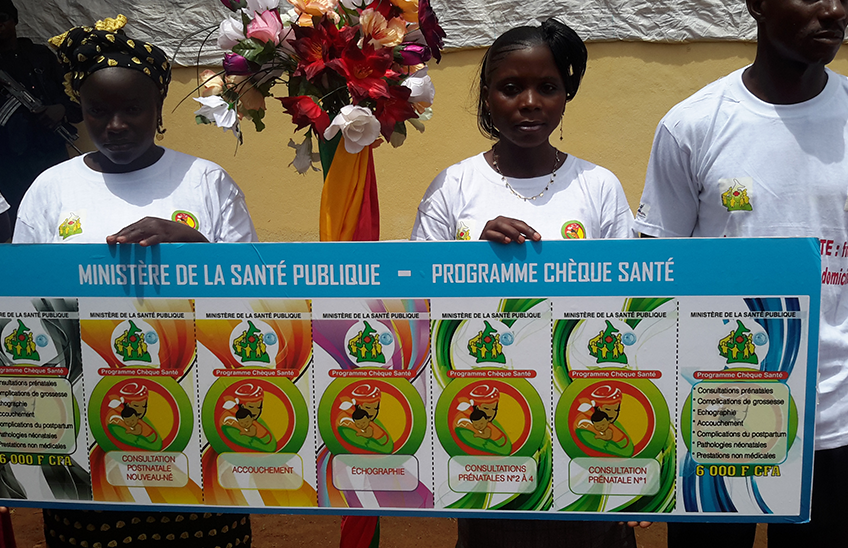Three years after its launch in 2015, the programme, co-financed by C2D and KFW, has achieved its objectives.
June 02, 2015 was a great day for Awah, a modest resident of Ngaoundéré. That morning, like many other women in the city and even in the Adamaoua region, she woke up particularly early. For the day, Awah and her neighbours had put on their most fancy clothes. Their smiles, which competed with each other in brilliance, testified to the joy and excitement that animated them.
In small groups, Awah and her neighbours invaded the courtyard of the Ngaoundéré Regional Hospital. They were not surprised by the particular effervescence that reigned in these places. The sun had made an appointment with the people, and already the groups of dances and songs gave a certain solemnity to the event. The main courtyard of the public dispensary was overcrowded. That June 02, she had made her best toilet to host the launch ceremony of the "health check", the first that Awah and her neighbours would ever receive.
Three years after this launch, we returned to Ngaoundéré. We haven't found Awah. And we also met Josianne, Maimouna and Aichata, women who, like Awah, benefited from the health check. It was at the Dang Health Centre in Ngaoundéré that the three women gave their moving testimonies on this wonderful initiative. Josianne is the first to express herself: "Thanks to the health check, I benefited from total care and free care during my pregnancy. I was able to give birth without any worries, and I thank the government for thinking about pregnant women. Maimouna thinks no less of it, and she claims it: "With the health check, I have done my 4 prenatal visits for free. Beyond that, the team provided us with advice to better manage our pregnancies. Without the health check, I wouldn't have had enough money to cover all these expenses. "The final word goes to Aichata. Still very moved, she says: "With the health check, I had a quiet, stress-free pregnancy. I was able to make my prenatal visits and give birth in the best conditions. The health check is really the solution for the pregnant woman."
At the Dang health centre, from the lamidat to Sabongari, Bamnyanga or Nord Cifan, pregnant women, carrying their health vouchers, a real sesame, march every day to benefit from the services attached to them. Like Aichata, Josianne or Maimouna, many of them, 33,168,000 in total, benefit from the health check and carry out their pregnancies in complete peace and serenity. Thanks to the health cheque, the Cameroonian government has launched a real fight to reduce maternal, infant and neonatal mortality, so that no woman dies giving birth and no baby loses his life before he has even lived.
In the Adamaoua region, for example, the statistics are positive, as explained by the project manager of the health check in the region: "Before the launch of the programme, there were nearly 1000 deaths per 100,000 deliveries. Thanks to the health check, only 69 deaths were recorded for 23,000 deliveries, a reduction of more than a third in maternal mortality. As for children, only 155 deaths were recorded out of 23,000 births, or less than 1% of deaths." In total, in the three regions (Adamaoua, North and Far North) covered by the programme, 86,106 health vouchers were sold. They made it possible to carry out more than 193,267 prenatal consultations for 59,286 deliveries. 97 female deaths and 369 newborn deaths were recorded.
In the light of these figures, we can recognize that the project has achieved its objectives and even exceeded expectations. For the regional coordinator of the project in Adamaoua, "the health check has clearly helped to reduce maternal and infant mortality. It has also made it possible to systematically strengthen health information. Before, there was very little data available on births. Today, health information is available and makes it possible to make the right decisions. With this information, a reliable gateway can be created, for example, with family planning programs. The health check helps to foresee a better future for the pregnant woman. It is an initiative to be extended."
The aim of the health cheque project is to contribute to the fight against maternal and infant mortality, which is particularly high in the northern part of the country where almost all deliveries have hitherto been carried out at home, and prenatal visits are almost non-existent. The concept is built on a subve model




